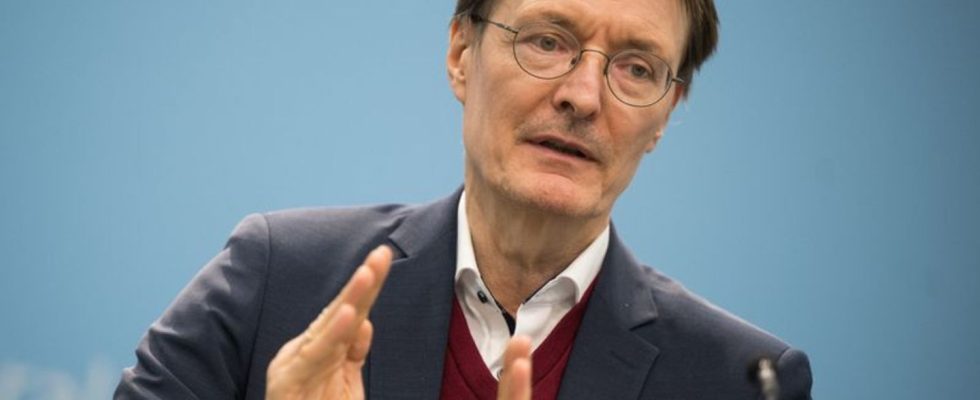Health
Next steps for hospital reform agreed
According to Federal Health Minister Karl Lauterbach, the planned hospital reform is absolutely necessary given the financial hardship of many clinics. photo
© Sebastian Christoph Gollnow/dpa
Negotiations about reorganizing the clinics in Germany were never easy. Now they extend even further into the new year. Despite a lot of friction, we should move forward together.
In the difficult struggle for one The federal and state governments have agreed on the next steps for hospital reform. A further working draft is to be presented by the end of next week, as Federal Health Minister Karl Lauterbach (SPD) said after joint discussions in Berlin. “Central points of criticism” should also be addressed.
In the second week of January, the federal and state governments are due to vote again in order to then work on a draft bill for the planned law. Further joint action was also confirmed by the states.
“The revolution continues”
Lauterbach said the reform was absolutely necessary given the financial hardship of many clinics. “And there is a consensus that this reform must come urgently and quickly.” It is a difficult discussion. The result of the federal-state round is: “The revolution continues,” said the minister about the legislative plans.
The reform aims to change the clinics’ remuneration system with flat rates for treatment cases in order to relieve them of financial pressure to increase the number of cases. In the future, they should receive 60 percent of their remuneration simply for providing services. The basis for financing by the health insurance companies should also be more precisely defined service groups. They should also ensure uniform quality standards. In the summer, the federal and state governments mostly agreed on the basic principles of a reform. Preparatory work on a draft law has been underway for several weeks.
BaWü Health Minister: A tough process
The chairman of the state health ministers, Manne Lucha (Greens) from Baden-Württemberg, said that after the key points, operations had come to a standstill. Regarding criticism of the countries, Lauterbach made it clear at the meeting that he saw the position of the countries on some points. It is a success that there has now been no disagreement. It was agreed to continue working “in this community of responsibility”. It is a hard process. “But we’re not backing down,” Lucha said. The aim is to implement sustainable and flexible solutions depending on regional needs.
Lauterbach reported that, among other things, the effects of the reform on the states and de-bureaucratization were discussed – and also about exceptions if certain quality requirements could not be met immediately. Overall, the reform is aimed at greater specialization. Hospitals would have the opportunity to “breathe again, that the economic pressure is gone.” For clinics it also means “a kind of guarantee of existence,” especially in rural areas.
Lauterbach: The law’s entry into force has been delayed
Bavaria’s Health Minister Judith Gerlach (CSU) criticized the fact that the states’ essential demands had not been discussed. An impact analysis is necessary. She welcomed the fact that the states wanted to discuss the matter in a closed meeting. For the traffic light coalition factions in the Bundestag, which are also involved in the deliberations, SPD specialist politician Heike Baehrens spoke of an “irreversible process” that should now be brought to fruition in a timely manner.
Lauterbach had already made it clear that the law’s entry into force, initially scheduled for January 1, 2024, will be delayed. However, from the current perspective, the implementation steps targeted for 2025 and 2026 are not in question. The German Foundation for Patient Protection criticized that the “finger-wringing” continued. It is necessary to agree before Christmas which 250 clinics in rural areas are indispensable. “Financial resources must be made available immediately for this,” said board member Eugen Brysch. “Otherwise the houses that need to be saved later will be gone.”

